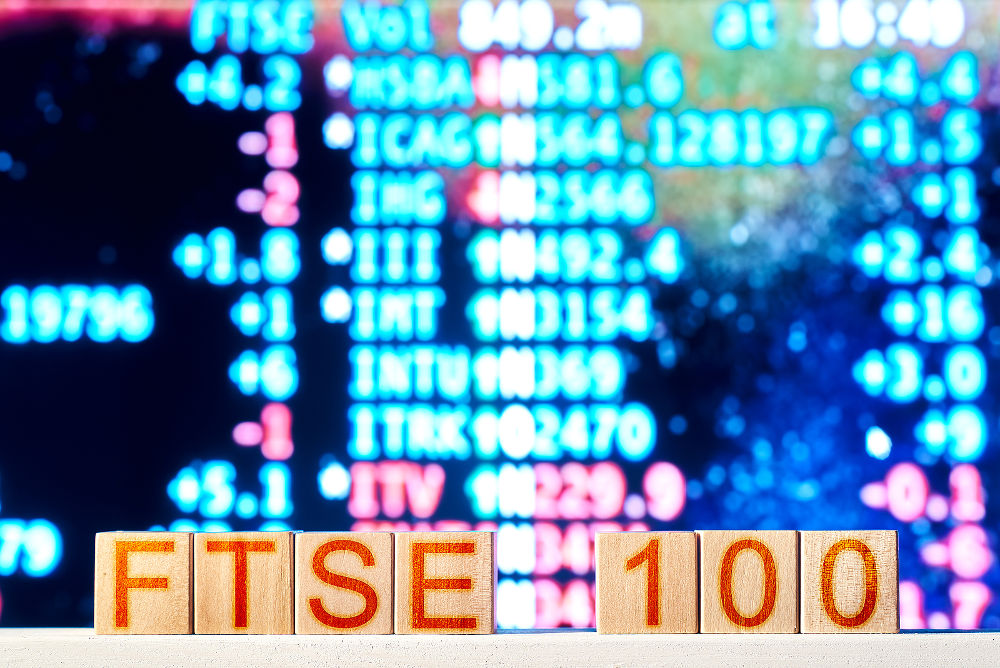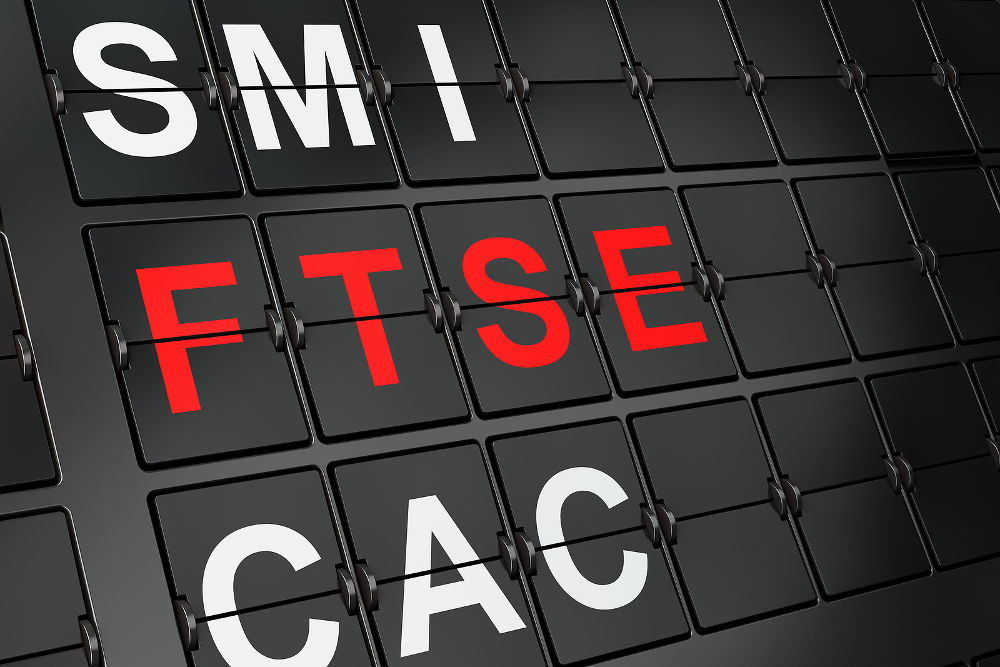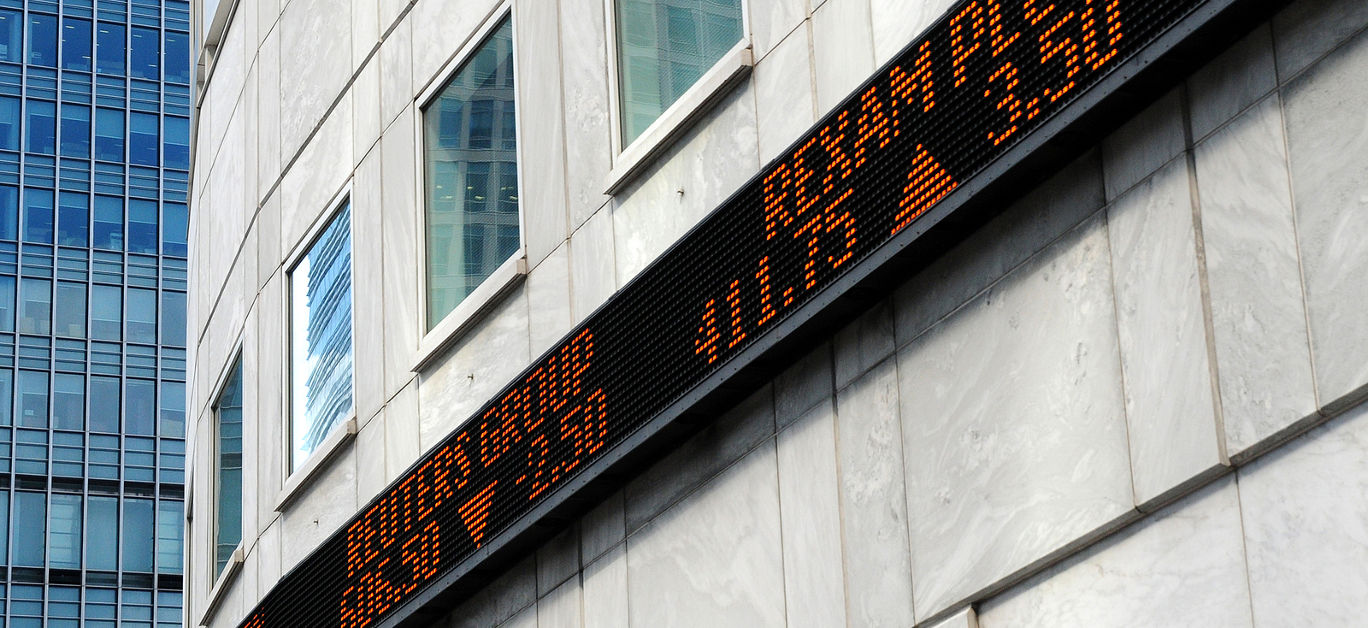The City of London, a vibrant hub where financial news pulsates through the streets, is a microcosm of the global market. Here, amidst the towering skyscrapers and bustling exchanges, the latest developments in the world of finance unfold, and the FTSE 100 is at the front and centre of all the action.
What is the FTSE 100? The Financial Times Stock Exchange 100 Index is a market capitalisation-weighted index that tracks the performance of the 100 largest companies listed on the London Stock Exchange (LSE), serving as a benchmark for the overall health of the UK stock market and closely watched by investors around the world.
It is, of course, impacted heavily by geopolitics and economic uncertainty, but this isn’t limited to the FTSE alone. Recent trading figures in the United States on the S&P 500 painted a picture of a market under downward pressure that reflects the current state of the FTSE – with most sectors (with the exception of the energy sector) seeing losses and real estate stocks bearing the brunt of the decline – and events and news such as this, originating in one region, can ripple across continents, impacting investor sentiment and stock prices in other markets, too.
Understanding the FTSE 100 and how it interacts with other major indices provides valuable insight into the health of the global economy.
Across Asia, markets have also been struggling, with Japan’s Nikkei N225 retreating, China’s CSI300 blue chips easing, and Hong Kong’s Hang Seng index dropping, and although the figures can change dramatically and a little more than a moment’s notice, it shows that what affects one market tends to affect them all, signifying a wider global economic trend.

US Federal Reserve and economic indicators
Traders recently adjusted their expectations for Federal Reserve interest rate cuts following higher-than-expected US inflation. Forecasts now suggest rate cuts may not materialise until after the November 5th vote, with expectations adjusted to one to two quarter-point cuts for the year – while confidence in a July rate cut has diminished, with markets eyeing potential cuts by September.
Global economic trends
China’s consumer prices saw a modest increase in March, falling below analysts’ predictions. This outcome signals ongoing challenges in stimulating domestic demand, with a mere 0.1 per cent rise compared to the previous year – lower than the expected 0.4 per cent.
Meanwhile, Britain’s housing market witnessed a surge in buyer interest, reaching a two-year high. House prices have peaked since 2022, buoyed by easing inflation and lower mortgage rates, and the Royal Institution of Chartered Surveyors (RICS) reported a notable increase in March buyer inquiries, surpassing economists’ forecasts. All eyes are now on the European Central Bank’s monetary policy decision, with speculation rife about a potential rate cut in June. Moreover, investors await updates on US producer prices and weekly unemployment claims, while major financial players such as JPMorgan, Citi, State Street, Wells Fargo, and BlackRock are set to reveal first-quarter earnings on Friday.
As economic signals continue to shape global markets, London’s financial hub remains a focal point for traders, analysts, and investors alike, navigating through the ebbs and flows of the ever-evolving economic landscape.
FTSE 100: Turning weakness into strength
In the ever-changing landscape of global markets, the FTSE 100 has often been viewed as lagging behind its counterparts, particularly in the tech-driven surge of recent times. However, analysts at Barclays suggest that this perception might soon undergo a significant shift.

Global equity market trends
Over the past year, equity markets worldwide have witnessed robust gains, propelled largely by tech firms. The S&P 500 and Nasdaq indices in the US have surged by nearly 10 per cent and over 10 per cent, respectively. Similarly, the DAX in Germany and the CAC in Paris have seen substantial increases, rising by over eight per cent and seven per cent, respectively.
In contrast, the FTSE 100 has shown more modest growth, gaining just 3.4 per cent, with the dominance of mining firms within the index weighing heavily, exacerbated by China’s economic challenges.
Potential strengths of the FTSE 100
Analysts at Barclays offer a different perspective, suggesting that the FTSE 100’s composition might become its greatest asset in the face of potential supply shocks and geopolitical fragmentation. Emmanuel Cau, Barclays’ head of European equity strategy, posits that the FTSE’s heavy weighting towards commodities, value stocks, and defensive sectors could serve as a hedge against stagflation.
Outlook and forecast
Barclays analysts have revised their Brent forecasts upwards, now expecting prices to reach $94 this year and next, up from the previous estimate of $90. Despite acknowledging the potential for increased market volatility amidst geopolitical uncertainties, Barclays remains optimistic about the performance of UK equities. Cau contends that UK equities, with their unique sector tilt towards commodities and defensive stocks, could fare well as a hedge in such a landscape.
As the FTSE 100 approaches its 40th year, the shifting dynamics of global markets present both challenges and opportunities. While its reliance on traditional commodity giants has been perceived as a weakness, Barclays’ analysis suggests that this very characteristic could become its strength in navigating the complexities of the modern economic environment.






















